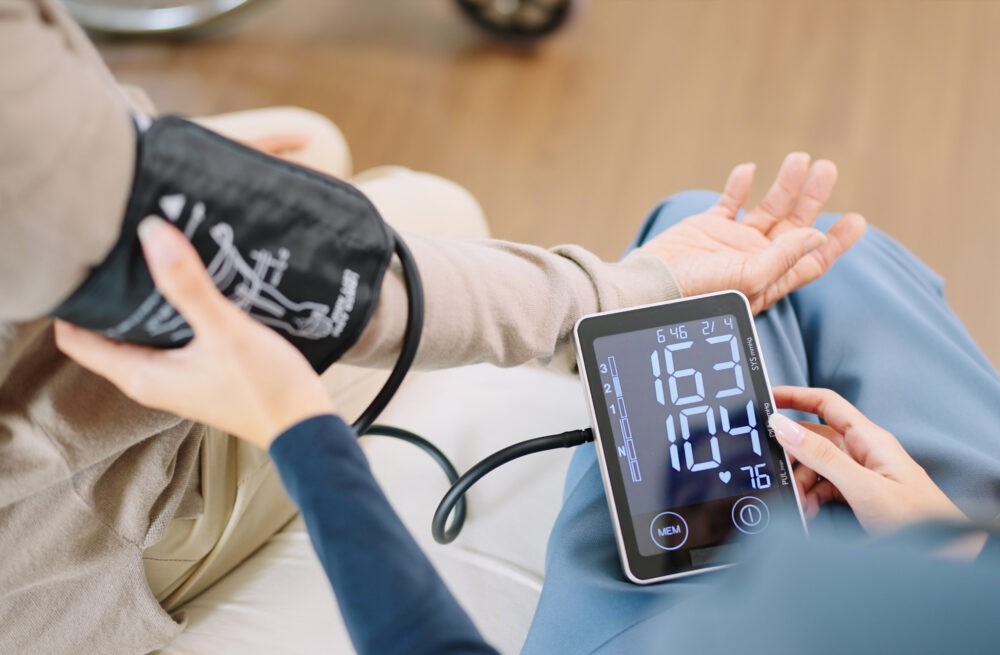What is Hospice?
- Hospice providers care for individuals who have a life-limiting illness and are no longer seeking treatment for a cure.
- Hospice is not a place; it is a type of high-quality care that provides for the medical, emotional and spiritual care of persons and their family.
- Hospice provides a special kind of caring through the work of the interdisciplinary team, some of whom are: Nurses, Social Workers, Chaplains, Doctors, Hospice Aides, Volunteers, and Bereavement Coordinators. A person may keep their own physician involved while on Hospice.
- Hospice provides comfort measures including management of physical symptoms (i.e. pain, nausea, anxiety, etc) and assistance with personal care if needed.
- Hospice assists people and their family members with ongoing counseling and spiritual support, including grief support related to loss.
- Hospice provides medications, medical supplies, and equipment as needed for comfort measures.
- Hospice staff provides education to the family on how to keep their loved one comfortable.
- Hospice can provide speech and physical therapy and dietician services when needed.
Who Receives A Hospice Benefit?
- Anyone facing a life-limiting illness, regardless of age or illness;
- Hospice serves people of all backgrounds, cultures and traditions; the hospice will provide care and assist with respect for a person’s values, religious needs, and any other individual desires for end of life.
- Families benefit from bereavement and grief support after the loss of their loved one.
Where does Hospice provide care?
- Hospice serves persons in their home, in assisted livings, in nursing homes, and, when needed, in hospitals.
When is the right time for Hospice Care?
- Hospice can provided the most benefit to people who begin services as early as possible; when it is determined that aggressive treatments are no longer beneficial.
- People elect hospice so that they can live out their life in the place and manner of their choice.
- A goal of Hospice is to help people accept death as a natural part of life; Hospice seeks neither to hasten nor prolong the dying process. The Hospice philosophy is that people matter even to the last minute of life.
- The person on Hospice and their family remain in control and direct their care with the aid of the Hospice Interdisciplinary Group.
How is Hospice paid for?
Medicare and Medicaid beneficiaries pay little or nothing for Hospice services; most private insurances also include Hospice coverage.
How to contact a Hospice?
Like all Healthcare providers there is more than one Hospice. Contact you health care provided for a list of Hospices in your area. It is encouraged that you interview several Hospices.
More information about Hospice at: http://www.ehospice.com/usa/en-gb/categories/educationforconsumers.aspx
The Interdisciplinary Group provides for the physical, psychosocial, spiritual, and emotional needs of a terminally ill person and/or their family members, based on individual assessment, goals and plan of care.
You may have any of the following involved in your Hospice care:
- Physicians: Two physicians generally are involved in your care.
- Attending Physician: You will be asked to choose a Doctor when you elect to receive hospice care, as your primary physician; that physician has the most significant role in the determination and delivery of the individual’s medical care. You can choose one of your personal doctors to be in this role.
- Medical Director: The Hospice will also have a Medical Director who is educated in areas specific to Hospice (i.e. pain, nausea, comfort measures). This physician will be aware of your situation via report from the rest of the team as well as by reviewing records. They will assist in your care and, at times, visit persons to ensure the hospice team is providing optimal care. The Hospice Medical Director will talk with your physician as needed.
- Nurses: RNs and LPNs who are trained in pain and symptom management and end-of-life issues. You will usually be assigned one primary RN case manager who will do most nursing visits and manage your needs. Nurses are available “on-call” during evening and weekend hours.
- Social Workers: Licensed Social Workers assist with emotional concerns, address issues causing stress and have information on additional community resources when needed.
- Chaplains: Persons trained in a variety of Faiths and Religions are available to address your spiritual needs, provide spiritual comfort and counseling; they can also assist with contacting community clergy if needed/ requested.
- Hospice Aides/ Certified Home Health Aides (as needed in NJ): Hospice Aides are assigned on an individualized basis when an RN case manager determines that there is need for this personal care. Hospice strives to allow you to be independent and cared for by loved ones; when additional help is needed the Hospice Aide will assist with bathing, personal hygiene, the person’s personal needs and personal space. They also assist in educating your loved ones on how to provide care while maintaining your dignity, privacy and safety.
- Hospice Volunteer Coordinator and Volunteers: These are specially trained persons who will support persons and families as friendly visitors and family support as needed/ requested.
- Bereavement Coordinator and counseling: Hospices provide ongoing support to you and your family specific to issues related to grief, loss, and mourning. The Bereavement Coordinator ensures these needs are addressed while you are on Hospice and after.
Dietary Counseling, Alternative Care/ Therapies (Physical/ Speech/ Music/ Pet- The Hospice Interdisciplinary Group works with counselors and therapists to provide comfort to the person. When this is required the Hospice will work with the person and family to find the appropriate Provider to address the identified need.
Hospice is highly individualized care – based on your needs and desires. Any services by Hospice are coordinated with your input and as needed by you.

